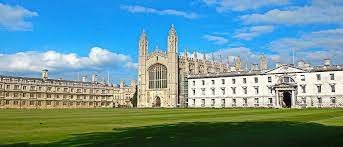As the world struggles with ever-increasing refugee crises, education often becomes a casualty, particularly for students seeking asylum. However, several organizations worldwide are offering fully funded scholarships to these students, enabling them to continue their studies and potentially create a better future for themselves.
In this blog post, we will explore such scholarships for students seeking asylum.
Fulbright Foreign Student Program for Asylum Seekers
The Fulbright Foreign Student Program is a globally recognized scholarship initiative that supports graduate education, training, and research across various disciplines. This program, however, is not just limited to regular students; it also encompasses students seeking asylum. This scholarship program provides comprehensive financial support covering tuition, books, travel expenses, and living allowances throughout study.
Eligibility:
- General requirements: You must be a citizen of a country participating in the FFSP, hold a bachelor’s degree, demonstrate English proficiency, and be committed to returning to your home country after the program. Specific age limitations might apply depending on the program.
- Additional considerations for asylum seekers: Your status as an asylum seeker might not disqualify you automatically, but some countries might have specific regulations or limitations for applicants facing legal uncertainties.
- Strengthening your application: Focus on academic excellence, relevant research experience, and demonstrating strong potential for contributing to your chosen field and your home country.
Applying:
- Choose the right program: Research country-specific programs within the FFSP to understand their unique priorities, eligible fields of study, and selection criteria. Consider programs aligned with your research interests and potential career goals.
- Meet deadlines: Each program has its own application timeline, typically with deadlines falling between November and February. Plan your application process well in advance to ensure timely submission.
- Craft strong application materials: Your academic transcripts, standardized test scores (if required), research proposal, and personal statement are crucial elements. Highlight your academic achievements, research experience, and how studying in the US aligns with your future aspirations.
- Seek guidance: Utilize resources like the Fulbright website, contact program advisors in your home country, or connect with educational support organizations for asylum seekers who might offer application assistance.
In essence, the Fulbright Foreign Student Program for Asylum Seekers serves as a beacon of hope for those whose educational pursuits have been disrupted by circumstances beyond their control. It offers them a unique opportunity to resume their studies and create a path to a more promising future.
UNHCR First Country of Asylum Scholarships
Aiming to make education more accessible for asylum seekers, the United Nations High Commissioner for Refugees (UNHCR) has established a scholarship program called the First Country of Asylum. This scholarship is specifically tailored for individuals who have sought asylum upon arrival in their initial country of refuge.
Eligibility:
- Registered refugee status: You must be officially recognized as a refugee by UNHCR or the relevant national authorities in your first asylum country.
- Academic merit: Strong academic performance is crucial, typically demonstrated through good grades in secondary school and relevant standardized test scores (if required).
- Financial need: You must demonstrate financial need and difficulty covering the costs of higher education without scholarship support.
- Age limitations: Depending on the country, eligible applicants might fall within an age range like 17-25 years old.
- Other requirements: Some countries might have additional criteria like specific educational focus areas or language proficiency requirements.
Applying:
- Application timeline: Deadlines typically fall between November and February of each year, but vary depending on the country. Check the UNHCR website or contact the relevant office for specific deadlines.
- Application materials: Required documents usually include completed application forms, official transcripts, letters of recommendation, proof of refugee status, and a personal statement or essay.
- Submission process: Applications are typically submitted online through the UNHCR website or via email to the designated contact address for your country.
This scholarship serves to illustrate UNHCR’s efforts in creating educational opportunities for students who are seeking asylum. It not only removes financial obstacles but also provides a support system that acknowledges and caters to the unique challenges faced by these students. Through this initiative, UNHCR helps them to keep their academic journey on track, encouraging their resilience and determination despite the trials they face.
Read Also: Fully Funded Scholarships For Students With Hearing Impairments
FAQS
What does life look like in recovery?
Recovery isn’t linear; it’s a journey of ups and downs, but ultimately, it leads to a more fulfilling and empowered life. Here are some common aspects of life in recovery:
- Freedom from addiction: The most significant change is breaking free from the grip of addiction. This allows you to reclaim your choices, relationships, and sense of self.
- Personal growth: Recovery involves embracing self-awareness, learning healthy coping mechanisms, and exploring new goals and passions. You’ll discover hidden strengths and resilience.
- Improved relationships: Rebuilding trust with loved ones and nurturing healthy connections brings greater intimacy and support.
- Physical and mental well-being: Prioritizing healthy habits like exercise, balanced diet, and self-care leads to improved physical and mental health.
- Meaning and purpose: Recovery opens doors to rediscovering your true self and finding purpose in life, whether through work, creative pursuits, or community involvement.
How do I love myself in recovery?
Self-love in recovery is crucial. Here are some steps to nurture it:
- Practice self-compassion: Accept that mistakes are part of the journey and forgive yourself for past struggles. Focus on progress, not perfection.
- Celebrate your achievements: Acknowledge and reward yourself for every step you take, big or small.
- Set realistic goals: Setting achievable goals and celebrating their accomplishment builds confidence and self-esteem.
- Engage in self-care: Prioritize activities that nourish your mind, body, and soul, like exercise, relaxation techniques, and hobbies you enjoy.
- Surround yourself with supportive people: Build a network of positive, encouraging individuals who celebrate your recovery journey.
- Express gratitude: Focus on the positive aspects of your life and the strength you’ve gained through recovery.
What are the 7 steps to loving yourself?
While there’s no one-size-fits-all formula, these steps can guide your self-love journey:
- Define your values: Identify what matters most to you and align your life choices with those values.
- Set boundaries: Learn to say no to protect your time, energy, and well-being.
- Embrace individuality: Celebrate your unique qualities and quirks.
- Challenge negative self-talk: Replace critical inner voices with positive affirmations and self-compassion.
- Forgive yourself and others: Hold onto resentment hurts you more than anyone else. Release the burden of past hurts.
- Invest in yourself: Prioritize learning, personal growth, and activities that bring you joy.
- Be kind to yourself: Treat yourself with the same care and compassion you extend to others.
Self-esteem building activities for recovering addicts:
- Volunteer: Helping others fosters a sense of purpose and connection.
- Creative pursuits: Expressing yourself through writing, music, art, or other creative outlets boosts confidence and self-discovery.
- Physical activity: Exercise releases endorphins, improves mood, and builds self-efficacy.
- Learning new skills: Taking on new challenges and mastering them enhances self-worth.
- Practicing gratitude: Taking time to appreciate the good things in life cultivates a positive outlook and self-acceptance.
Hobbies for recovering drug addicts:
- Outdoor activities: Hiking, biking, camping, or gardening connect you with nature and promote physical and mental well-being.
- Social activities: Joining clubs, sports teams, or community events builds social connections and fosters a sense of belonging.
- Creative pursuits: Writing, painting, playing music, or photography offer expressive outlets and build self-confidence.
- Mindfulness practices: Meditation, yoga, or spending time in nature can reduce stress and anxiety, aiding in recovery.
- Learning new skills: Taking a class, acquiring a new language, or mastering a craft provides challenges and a sense of accomplishment.
Remember, recovery is a unique journey. Explore what works best for you, be patient with yourself, and celebrate every step towards a healthier, happier you.
Conclusion
Education is a fundamental right and an essential tool in building a brighter future. Unfortunately, for many students seeking asylum, this right is often compromised. Thankfully, organizations like the Fulbright Program and UNHCR recognize the unique challenges these students face and have established fully-funded scholarships to support their academic aspirations. From covering tuition fees, living expenses, and travel costs, to providing health insurance and other educational resources, these scholarships ensure that financial burdens and logistical issues do not impede students’ academic progress.
In conclusion, for students seeking asylum, these scholarships provide more than just an opportunity for academic advancement; they offer a ray of hope, a chance to transform their lives, and a path to a more promising future. They reinforce the belief that no student should be left behind, irrespective of their circumstances. As we acknowledge and support the educational aspirations of these students, we take a step towards creating a more just and understanding society.






